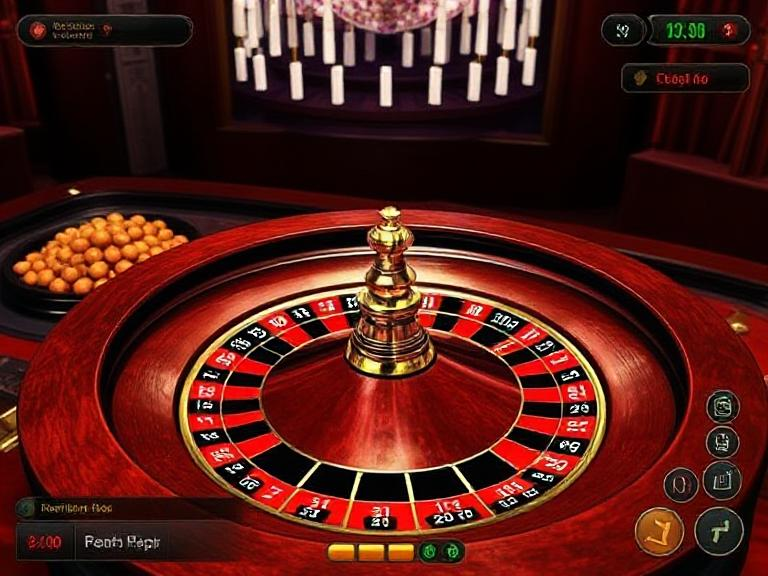The Gamble in Gaming: Navigating Luck vs. Skill Dynamics
In the vast universe of gaming, a perennial debate centers around two pivotal concepts: luck and skill. Gamers, developers, and analysts often ponder how these elements interplay, influencing gameplay and outcomes across various genres. From casual mobile games to competitive esports, recognizing the balance between luck and skill not only enhances your gaming experience but also sharpens your strategies. This exploration delves into the definitions of luck and skill, their roles in different gaming genres, and how players can navigate this intricate landscape to improve their performance in every gamble.
Understanding Luck and Skill
To fully appreciate the dynamics at play, it’s essential to define luck and skill clearly.
Luck can be described as the influence of random, unpredictable factors on outcomes. In gaming, this manifests in numerous ways—be it through random number generators (RNG), chance events, or scenarios where success does not directly correlate with a player’s decisions. Examples include rolling dice in board games or drawing cards in a card game, where chance significantly impacts the results of the gamble.
Skill, conversely, encompasses a player’s ability to strategize, execute game mechanics effectively, and leverage their understanding of the game to achieve success. Skill is acquired through practice, experience, and a deep understanding of game dynamics. In many competitive scenarios, it is skill that ultimately distinguishes winners from losers, especially in high-stakes gambles.
The Role of Luck in Gaming
Luck serves a fundamental role in many games, shaping the player experience in both casual and competitive contexts. Here are a few notable examples:
1. Casual Mobile Games
Casual mobile games such as “Candy Crush” or “Clash Royale” often weave elements of luck into their fabric. Players may develop strategies to maximize their chances of winning, but random level designs and card draws still play a significant role. For instance, a player might have an excellent strategy for using their cards, but if they draw poorly, the outcome of that gamble can drastically shift. This unpredictability can keep the gameplay fresh and engaging, as no two matches are precisely alike.
2. Tabletop Games
In tabletop games like “Monopoly” or “Catan,” luck is often at the forefront. Rolling dice determines movement and resource allocation, which can lead to significant swings in fortune. However, while luck can dictate immediate outcomes, skilled players can leverage strategic decision-making to minimize the impact of bad rolls and maximize the advantages of good ones. For example, a savvy “Catan” player may adapt their strategy based on the resources available to them and the current board state, even when luck is not in their favor, thereby improving their odds in the gamble.
3. Lottery and Gambling Games
Games of pure chance, such as lotteries and slot machines, hinge almost entirely on luck. The outcomes are randomized, and while players can apply strategies to manage their bankrolls, the act of winning is left predominantly to chance. The thrill of these games often comes from the unpredictability of the results—the gamble can lead to life-changing rewards or total loss.
The Role of Skill in Gaming
In stark contrast, skill-based games demand that players engage their cognitive and motor skills effectively. Here are several genres where skill predominates:
1. First-Person Shooters (FPS)
In FPS games like “Call of Duty” or “Counter-Strike,” player skill is paramount. Success hinges on accurate aiming, quick reflexes, and an astute understanding of the game’s maps and mechanics. While elements of luck can still arise—such as encountering an opponent unexpectedly or getting the drop on someone—most victories stem from strategic gameplay and individual skill. A player who has invested time in practicing their aim and learning the nuances of each map is more likely to emerge victorious in competitive scenarios, turning each match into a calculated gamble.
2. Real-Time Strategy (RTS)
Real-time strategy games, such as “StarCraft,” rely heavily on player skill. Gamers must manage resources, build units, and devise strategies while reacting to their opponent’s actions in real time. While luck may affect resource availability or random encounters, skilled players can adapt and outmaneuver their opponents. Mastery of game mechanics and a deep understanding of timing can dramatically shift the balance of power in these intense matchups, making each decision a strategic gamble.
3. Fighting Games
Fighting games like “Street Fighter” and “Mortal Kombat” are largely skill-based, requiring players to master character moves, combos, and timing. In competitive play, a player’s ability to read their opponent’s strategies and respond effectively is often what separates the winners from the rest. While luck can occasionally influence matchups or outcomes, a highly skilled player is generally able to control the pace and direction of the fight, making their moves less of a gamble.
The Balance of Luck and Skill
Most games feature a blend of luck and skill, creating a dynamic environment where both elements influence gameplay. Striking the right balance can significantly enhance player engagement and satisfaction.
1. Competitive Games
In competitive gaming, well-designed games often find a sweet spot between luck and skill. For instance, “Hearthstone,” a digital collectible card game, incorporates luck through card draws while rewarding players for strategic deck-building and in-game decision-making. This balance keeps the gameplay exciting and ensures that skilled players can leverage their abilities, even in the face of randomness. A player may draw an unfavorable hand, but their knowledge of card synergies and strategies can still guide them to victory, transforming their experience into a rewarding gamble.

2. Cooperative Games
Cooperative games like “Overcooked” or “Left 4 Dead” require teamwork and skill, but they also introduce elements of luck that can impact outcomes. Players must communicate effectively and strategize, but they must also be prepared for unexpected events—such as surprise enemy attacks or sudden time constraints. Here, the interplay of skill and luck fosters a sense of camaraderie and adaptability, as players work together to overcome challenges, making each session a thrilling gamble.
Navigating Luck and Skill in Gaming
As players explore the gaming landscape, understanding how to navigate the balance between luck and skill can significantly enhance their experience. Here are some strategies to consider:
1. Embrace Adaptability
In games where luck plays a considerable role, adaptability is crucial. If a random event doesn’t go your way, being able to pivot your strategy can help you manage the consequences of bad luck. For example, if you’re playing a card game and your draw doesn’t align with your strategy, consider how you can adjust your play style to make the most of the cards you do have, treating each round as a gamble that requires flexibility.
2. Develop Your Skills
Regardless of the genre, focusing on skill development is essential. This may involve practicing specific mechanics, studying game strategies, or engaging with the gaming community to learn from others. The more skilled you become, the better you’ll be at turning lucky situations into winning opportunities. Investing time in honing your skills can make a significant difference, especially in competitive environments where every gamble counts.

3. Manage Expectations
Understanding that luck is a factor in many games can help manage player expectations. Recognizing that outcomes can be unpredictable reduces frustration and enhances enjoyment. Embrace the thrill of chance as part of the gaming experience; this mindset can lead to greater satisfaction, regardless of the outcome of your latest gamble.
The Evolution of Luck and Skill in Gaming
The relationship between luck and skill in gaming has evolved significantly over the years. As technology has advanced, developers have introduced more nuanced systems that allow for a greater variety of outcomes based on player choices and random elements.
1. Game Design Innovations
Modern game design often includes mechanics that allow players to mitigate the effects of luck. For example, games like “Slay the Spire” feature card-drafting systems where players can build their decks strategically, thus minimizing the impact of luck on their overall success. This blend of strategy and chance engages players and encourages them to think critically about their choices, enhancing the overall gamble of gameplay.
2. Emerging Genres
New genres, such as roguelikes and battle royales, further illustrate the blend of luck and skill. In roguelikes, players encounter randomly generated levels that require skillful navigation and decision-making, but the unpredictability of the environment adds a layer of luck to the mix. Similarly, in battle royale games like “Fortnite,” players must showcase their skills in combat and building, but the randomness of loot drops and the shrinking play area introduces elements of chance, making every match a high-stakes gamble.
Conclusion
The intricate relationship between luck and skill in gaming creates a rich and diverse landscape for players. While luck can inject excitement and unpredictability, it is often the skill that ultimately drives success. By understanding the roles these elements play in different games, players can make informed decisions, develop their skills, and enjoy the multifaceted nature of gaming.
As you prepare for your next gaming session, consider how you can harness both luck and skill to enhance your performance and enjoyment. Whether you’re rolling dice in a tabletop game or strategizing in a competitive FPS, remember that every game is a unique gamble one where both luck and skill can lead you to victory. Happy gaming!
- Stars777 – Download and Install the app to play casino games with free starting bonuses and get the chance become billionaire someday!
- Stars777 Privacy Policy — Understand how Stars777 collects, uses, and protects your personal information when you use their platform.
- Stars777 Terms of Service and Guidelines — Learn about the rules and conditions you agree to when accessing and using Stars777’s online casino services.








